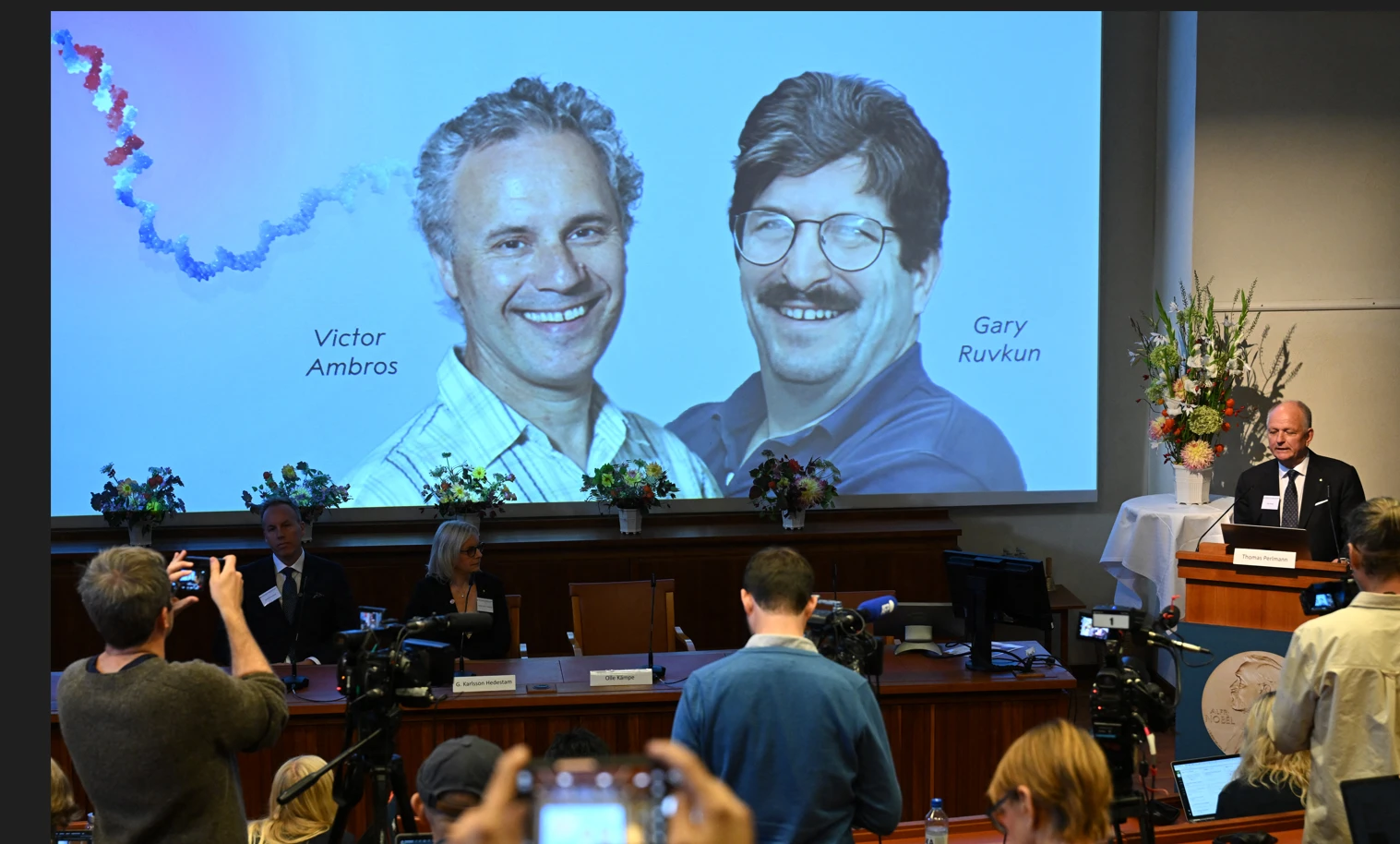US duo win Nobel Prize for Medicine for gene regulation discovery

Stay tuned with 24 News HD Android App

US scientists Victor Ambros and Gary Ruvkun won the Nobel Prize in Medicine on Monday for their discovery of microRNA and its role in how genes are regulated.
Understanding the regulation of gene activity has been an important goal for decades, the Nobel Assembly at Sweden's Karolinska Institute said.
"If gene regulation goes awry, it can lead to serious diseases such as cancer, diabetes, or autoimmunity", it said.
"Their groundbreaking discovery revealed a completely new principle of gene regulation that turned out to be essential for multicellular organisms, including humans," the jury said.
Ruvkun, 72, told Swedish public radio SR he was shocked to receive the prize committee's call in the wee hours of Monday.
"It's a big deal. It's a big one. It's an earthquake," he said.
"The dog is confused by why it's dark outside and we are running around the house," laughed Ruvkun, a professor at Harvard Medical School.
He said he looked forward to the Nobel gala banquet on December 10 in Stockholm, where the laureates will receive their prizes from the hands of Sweden's King Carl XVI Gustaf.
"It's a party. You don't think of a bunch of scientists as party animals but we really are."
The Nobel committee failed however to reach Ambros, who learned the news from an SR reporter who called and broke the news.
"Wow, that's incredible! I didn't know that," the 70-year-old professor at the University of Massachusetts medical school said, adding: "Good. Wonderful."
Collaborating but working separately, Ruvkun and Ambros conducted research on a one millimetre roundworm, C. elegans, to determine why cell mutations occurred and when.
They discovered microRNA, a new class of tiny RNA molecules that play a crucial role in gene regulation, which in turn allows each cell to select only relevant instructions.
Their findings were published in two articles in 1993.
"The seminal discovery of microRNA has introduced a new and unexpected mechanism of gene regulation," Thomas Perlmann, secretary general of the Nobel Assembly, told reporters.
"MicroRNAs are important for our understanding of embryological development, normal cell physiology and diseases such as cancer," he said.
- Medical trials underway -
Gunilla Karlsson Hedestam, a biology professor at the Karolinska Institute, told reporters that "though there are no very clear applications available yet in microRNAs, understanding them, knowing that they exist, understanding their counter regulatory networks, is always the first step."
"There are quite a lot of trials ongoing, not only against cancer but also other diseases, cardiovascular, kidney diseases," she said.
The Nobel Prize consists of a diploma, a gold medal and a $1 million cheque to be shared by the pair.
Last year, the medicine prize went to Katalin Kariko and Drew Weissman for work on messenger RNA (mRNA) technology that paved the way for Covid-19 vaccines.
The Nobel season continues this week with the announcement of the winners of the physics prize on Tuesday and the chemistry prize on Wednesday.
They will be followed by the much-anticipated prizes for literature on Thursday and peace on Friday.
The economics prize winds things up on Monday, October 14.
For Tuesday's physics prize, Swedish public radio SR's science experts suggested the honour could go to Swiss physicist Christoph Gerber, a pioneer in the development of the atomic force microscope.
"This is a microscope that gives 3D images on such an incredibly small scale that they sometimes are even atomic resolution," said SR science reporter Camilla Widebeck.
The tool has become indispensable in nanotechnology and nano research, she added.
The Clarivate analytics group also highlighted David Deutsch and Peter Shor for their work on quantum algorithms and quantum computing.
